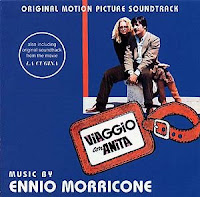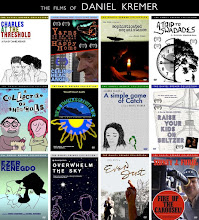 Viaggio Con Anita (Travels With Anita, also known under its American title Lovers and Liars) is yet another strange and unlikely film that I saw when I was very young, maybe too young. Even at a young age, I was mystified by the fact that Goldie Hawn, at the very height of her popularity in the United States, following a string of soaring late 70's hits, would agree to star lead opposite Giancarlo Giannini in a highly unusual dubbed Italian sex comedy. It donned on me years later with an obvious answer: a paycheck and a free trip to Italy. Why not, right? The film did not score well at all with critics, at least in the American and British press, and the movie soon vanished into obscurity.
Viaggio Con Anita (Travels With Anita, also known under its American title Lovers and Liars) is yet another strange and unlikely film that I saw when I was very young, maybe too young. Even at a young age, I was mystified by the fact that Goldie Hawn, at the very height of her popularity in the United States, following a string of soaring late 70's hits, would agree to star lead opposite Giancarlo Giannini in a highly unusual dubbed Italian sex comedy. It donned on me years later with an obvious answer: a paycheck and a free trip to Italy. Why not, right? The film did not score well at all with critics, at least in the American and British press, and the movie soon vanished into obscurity.I still today find the film to be something of a pleasure to view, perhaps a guilty pleasure, with more than a few great moments. Its dazed, desperate tonal confusion is endearing and, amazingly, works in the film's favor. And look at the names in the credits! Claudine Auger and Laura Betti co-star, Mario Monicelli directs (Big Deal on Madonna Street and Casanova 70 were both respected films, folks), Tonino Delli Colli shoots and Ennio Morricone scores. The latter is one of the most fascinating aspects of the film. You can often tell very easily that it's a Morricone score (it has the earmarks), but it often feels antithetical to much of his work around the time he scored this film. I mean, hey, Ennio must have been scoring like 400 other films the weekend he scored this one, but this particular score, even though it may seem dated to most these days, is one of his most intriguing and original, not to mention underrated. When I sent the film's main theme via e-mail for a friend to listen to, he told me that he hated it because it sounded like the theme song from a warped, failed children's TV show from the 70's. I wouldn't say that, personally. I then sent him another piece from the soundtrack, entitled "Sull'amaca," which uses a cello like one strums a guitar, which he loved. I might add that I believe "Sull'amaca" to be one of the sexiest love themes from that period of cinema, punctuating a passionate hammock love scene between the two leads.
Other aspects of the score are intriguing as well. Morricone uses a spry harpsichord in many of his cues and he also takes the score into surprisingly mournful directions. The film's last act deals with Giannini covering up the death of his father to Hawn, stowing her away unknowing to rot in a hotel while he deals with the repercussions of his father's sudden passing. Morricone accents these sequences with a treatment of one of the main themes except with melancholic trumpet offset by strings in responsa (and, in "La Ragazza del Padre," a slightly distorted guitar sound). The album as a whole makes excellent travel music, if you ask me. I mean, the movie it scores is a road movie.
As a bonus, Morricone's score from La Cugina, which I have not seen, is included as well. The scores have connecting tissues, but La Cugina, to me, isn't nearly as intriguing as Viaggio con Anita. Also, savor the so-bad-they're-good funk songs "Move," "Good News" and "Sorridimi, Sorridimi". Close your eyes and make your believe you're in some disco in Idaho. Yep, it's that good.
Download the score here. This, again, is not my link. Thanks to Brainiac's Sleazy Listening blog for this upload!


No comments:
Post a Comment